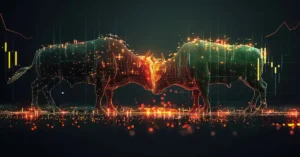In the ever-expanding arena of internet terminology and digital branding, certain words emerge from the margins—neither dictionary-defined nor instantly recognizable, yet increasingly recurrent in online content. “Lancal” is one such term. Whether you’re encountering it in blog metadata, a brand name, tech documentation, or speculative online communities, the question arises: What is Lancal, and why is it gaining traction in 2025?
In the spirit of The New York Times’ investigative and nuanced approach to evolving language and digital culture, this article unpacks it from every angle. It explores potential meanings, domains of use, and why a word like this—ambiguous, flexible, and unanchored—has increasing relevance in our algorithm-driven world.
Understanding the Term “Lancal”
It doesn’t have a standard dictionary entry or a widely accepted definition. It is not a technical acronym (yet), a registered trademark (so far), or a chemical formula (unlike other compound-code terms). But therein lies its power: it is an open container—ripe for interpretation, branding, or tagging.
Working Definitions by Context
- Lancal as a Digital Alias or Project Name
In some tech circles, it has appeared as a code name for beta software projects or internal content management systems. Names like this are often used during stealth phases of development. - Lancal in AI-generated Content
It has been noted as a randomly generated placeholder or label within datasets used to train AI models. As more large language models invent terms, we’re seeing a rise in artificial neologisms. - Lancal as Brand Potential
With its short, rhythmic construction, it reads like a startup brand or SaaS (software as a service) tool—e.g., “Lancal: Your AI-optimized calendar platform.” Its open-endedness is attractive to marketers. - Lancal in Forums and Metadata
In less formal settings, it shows up in hashtags, forum threads, and metadata fields—often undefined but signaling niche tags, subtopics, or synthetic content categories.
READ MORE: Panukatan Martial Arts Online: Preserving Philosophy and Adapting Technique in 2025
Why Are Terms Like Lancal Gaining Ground?
In a digital environment shaped by metadata, SEO, and AI generation, terms that seem like noise to the untrained eye may in fact carry purpose. There are several reasons a term like it might proliferate:
1. Search Engine Optimization (SEO) Flexibility
Low-competition keywords with high click potential are SEO gold. A term like it, if adopted by a product or trend, becomes indexable real estate—quick to rank, easy to own.
2. Naming Availability
New businesses and projects often struggle to find brandable names with available domains and social handles. it offers uniqueness without linguistic baggage.
3. Machine-Learned Vocabulary
AI systems often generate or adopt semi-random words in modeling exercises. As these systems contribute more content to the web, we encounter terms that began as data points.
4. Content Categorization Tags
Web platforms may use synthetic terms to tag content types, experiments, or user segments—effectively developing internal naming dialects.
The Branding Angle: Why it Feels Like a Startup Name
Brand strategists are increasingly drawn to invented words—especially those that are short, easy to pronounce, and phonetically pleasing. It fits the mold of brand names like:
- Trello
- Klarna
- Canva
- Zendesk
These names function across languages and don’t carry unintended cultural baggage. If it is adopted by a product, its blank slate will allow marketers to shape its meaning from scratch.
Lancal and Artificial Intelligence: A Symbiotic Rise
Language models like GPT and content generators rely on endless repositories of labeled and unlabeled data. Terms like Lancal often emerge from:
- Dataset placeholders
- Internal token labeling
- Algorithmic content experiments
In some cases, they surface in live text as artifacts—accidental linguistic inventions that stick. As more AI content goes public, we should expect more Lancals to enter our language pool.
READ MORE: Old Town Penobscot RX 17: A Canoe Built for Purpose, Tradition, and Performance
Implications for Users and Readers
- Search ambiguity: Users may Google “Lancal” out of curiosity, finding diverse and unrelated results—until a dominant definition or brand emerges.
- Disinformation filter: Some synthetic keywords are now used to detect whether text is AI-generated.
Could Lancal Be the Next Big Brand?
It’s plausible. Here’s what it has going for it:
- Memorability: Simple and rhythmically balanced.
- Availability: Likely unregistered across major domains.
- Versatility: Could apply to fintech, AI tools, edtech, or even wellness.
- Mystique: Lacking meaning gives it room to grow into an identity.
In an era where companies like “X” and “Meta” lead the tech conversation, Lancal fits the mold of modern brand abstraction.
The Philosophical Layer: Language in Flux
It is a symbol of how modern language behaves. It shows that meaning is often assigned post-use. Much like early internet acronyms, emoji interpretations, or Twitter hashtags, words evolve by how people employ them.
It reminds us:
- Digital language is democratic—usage defines meaning.
- Words can be born without etymology.
- Context matters more than definition.
How to Use Lancal in Practice (If You Want To)
Whether you’re naming a product or starting a meme, here’s how it could be employed:
- As a brand: Launch a service called Lancal—own the narrative.
- As a tag: Use it as a unique filter for content or campaigns.
- As satire: Embrace the absurdity of naming trends.
- As placeholder: Label experimental or draft content.
Where You Might Encounter Lancal
- Newly launched apps or platforms
- Product Hunt or IndieHackers
- Subreddits for branding or startup reviews
- GitHub repositories
- AI-generated blogs and metadata
Final Thoughts: Lancal as a Case Study in Modern Meaning
Lancal may be a mystery keyword, but it’s a very 2025 kind of mystery—born of algorithmic chance, branding ambition, and digital curiosity. In this sense, it mirrors broader internet culture: flexible, fast-moving, and full of potential.
Whether it evolves into a brand, a meme, a reference code, or vanishes into digital dust, Lancal represents a fascinating moment in the evolution of language and digital identity.
Frequently Asked Questions
1. What does Lancal mean?
There is no fixed definition yet. It is likely a placeholder, invented term, or emerging brand reference.
2. Is Lancal a real word?
Not in dictionaries—but like many modern terms, it may become one if adopted widely enough.
3. Where did Lancal come from?
Possibly AI-generated, user-coined, or created for branding or metadata tagging purposes.
4. Is Lancal being used commercially?
As of now, there’s no major brand using it, but its structure makes it suitable for tech startups or digital tools.
5. Should I use Lancal in a product name or domain?
If you like its sound and availability, it could be a strong contender for a distinctive digital identity.









